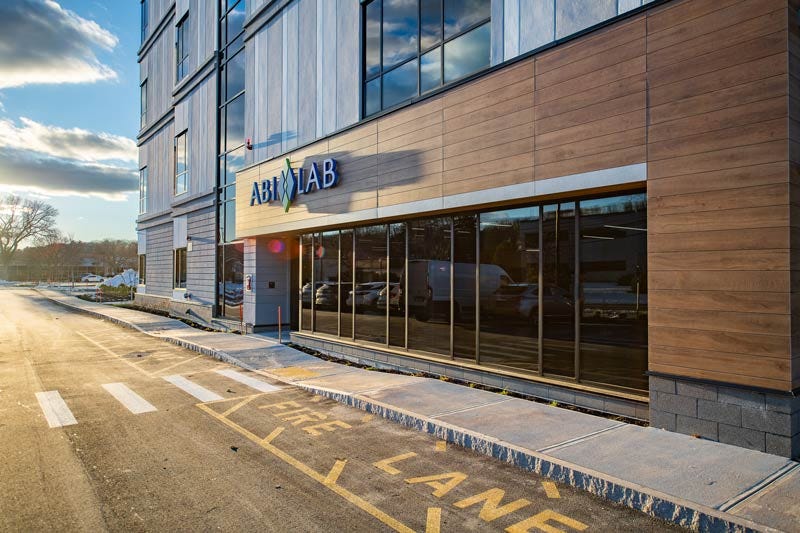Markey prime example how Dems jettisoned their working class base | Intellectual dishonesty at GBH | Hello more empty lab buildings? | New lease on life for Wellesley seafood mainstay | Kraft offers simple but effective solution to Boston’s exam school mess | Mancuso: Mass. schools continue to fail minority students |
News tips? Story ideas? Email us at sbvanvoorhis@hotmail.com
Too much of a good thing: As Greater Boston struggles to fill empty lab buildings and projects from a boom gone bust, fresh trouble looms as Trump slashes research dollars
Greater Boston’s reeling lab market is about to go from bad to worse.
In fact, a lot, lot worse.
The battered life sciences sector is already sitting on enough empty lab space to fill 16 Prudential towers.
After a massive wave of overdevelopment and a retrenchment by the once red hot life sciences sector, demand for new research facilities is slim to none.
Now the Trump administration is barreling ahead with plans to cut billions in NIH grants and other funding on which dozens of other institutions across the state depend.
At the most basic level, that will mean even fewer dollars circulating in the state’s life sciences eco system at a time when industry stock prices have been hammered and venture capital funding has declined, Jeffrey Meyers, research chief for the Boston office of Colliers, a commercial real estate firm, told Contrarian Boston.
And it couldn’t come at a worse time, with the lab vacancy rate in the Boston area poised to cross the once unthinkable 30 percent mark by year’s end, Meyers said.

Massachusetts potentially stands to lose nearly $3 billion in research funding, including more than $2.2 billion in money that had been earmarked for Harvard but is now frozen, according to the Massachusetts Biotechnology Council.
“I don’t think we’ve hit (bottom) yet,” Meyers said. “Whenever you are talking about the disruption of money flowing into the life sciences eco system, that disruption can have negative consequences.”
There is now a whopping - and record - 16 million square feet of empty lab space on the market in the Boston area, an all-time record, according to Meyers, Colliers’ local research director.
And the amount of empty space just keeps on growing, with 3 million square feet in new lab buildings still in construction.
But it’s not just new space that’s hitting the market, but existing lab space no longer needed by companies that are scaling back and cutting jobs.
While overall employment in the life sciences sector has roughly held steady, with 116,643 jobs at the end of 2024, there has been no growth, either, with a steady drumbeat of layoffs by a range of companies.
In a new report, Mark Williams, a Boston University Questrom School of Business master lecturer in finance, predicts the state could lose $5.4 billion to $9 billion in economic activity, and more than 60,000 jobs over the next three years.
“Massachusetts risks losing its lead position in life sciences, harming an industry that has been an important economic driver,” Williams said in a statement.
And as the life sciences industry goes, so goes the demand for all those millions of square feet of empty lab space.
Intellectual dishonesty? GBH station chief defends public media from charges of bias but makes no mention of the elephant in the room
That would be GBH President and CEO Susan Goldberg.
Goldberg went on her station’s flagship talk program the other day to blast the Trump administration’s push to yank government funding from NPR and PBS.
Chatting with the hosts of Boston Public Radio, Goldberg quickly pivoted to touting all the children’s programming the station does and how it now faces extinction amid the potential loss of millions in federal dollars.
This is straight out of the playbook public media execs have used for years, rolling out Big Bird and Elmo every time conservatives threaten to cut funding.
Maybe there are some nutters out there who think Sesame Street is a commie plot, but Goldberg - and Boston Public Radio hosts Jim Braude and Margery Eagan - surely know the charges of bias relate mostly to NPR.
Keep reading with a 7-day free trial
Subscribe to Contrarian Boston to keep reading this post and get 7 days of free access to the full post archives.





